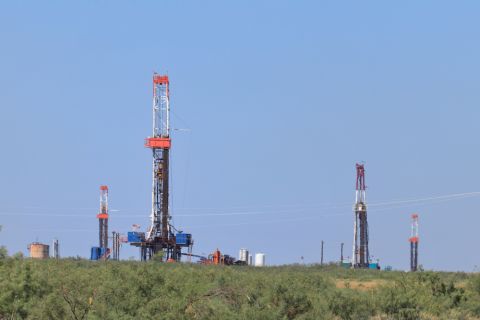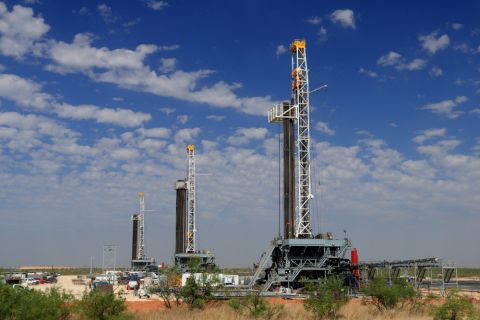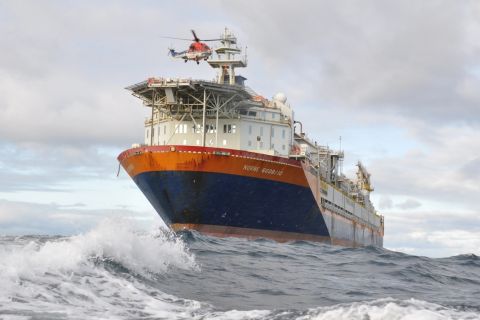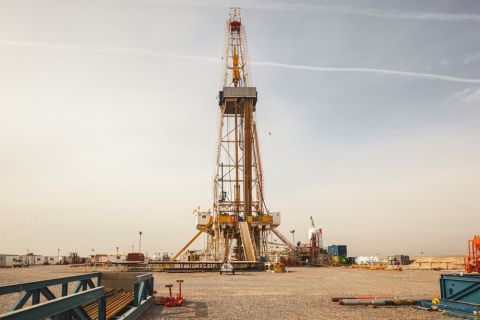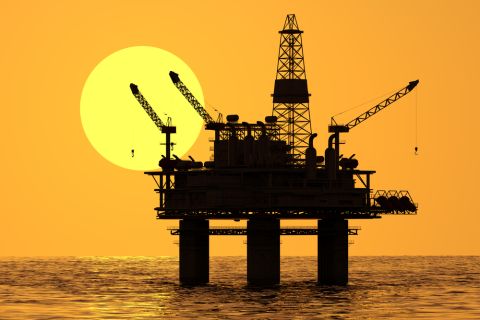This American oil company won't let it ride. ExxonMobil Corp. has received international court rulings to freeze some $12 billion of Venezuela's oil and gas assets toward eventual compensation to XOM of assets lost in a restructuring of the country's national oil company, PDVSA. ConocoPhillips and other producers that partnered with PDVSA in Venezuela have also been squeezed out or forced into revised terms. Following is Standard & Poor's Ratings Services' summation of credit and other implications. For additional commentary, see From Citgo's Pockets To PDVSA's Programs and Fitch’s Take On Citgo’s Loan To PDVSA: Downgrade "Standard & Poor's Ratings Services said today that news regarding Exxon Mobil Corp.'s (Exxon Mobil; AAA/Stable/A-1+) moves to freeze $12 billion in Petroleos de Venezuela S.A.'s (PDVSA; BB-/Stable/--) overseas assets has no immediate impact on our rating and outlook on The Bolivarian Republic Venezuela (Venezuela; BB-/Stable/B) and its national oil company and related entities, including CITGO Petroleum Corp. (CITGO; BB/Stable/--), Petrozuata Finance Inc. (Petrozuata) and C.A. La Electricidad De Caracas (EDC; BB-/Stable/--). "The reach of the court orders obtained by Exxon Mobil in the U.K., the Netherlands, and the Netherlands Antilles outside of the aforementioned jurisdictions is uncertain. Furthermore, frozen assets in the U.S. are limited to about $300 million, which is not significant relative to PDVSA's unrestricted cash in hand (about $3.6 billion as of second-quarter 2007) and total assets (about $92 billion as of second-quarter 2007). We do not believe the aforementioned court orders will have a meaningful impact on PDVSA's day-to-day operations, given that it appears that the court order only prevents PDVSA from disposing of its assets. Nevertheless, credit terms from suppliers and financial institutions could become more stringent and increase the cash cost of doing business for the issuer. "Furthermore, the rulings highlight our ongoing concern regarding the issuer's ability to attract foreign investment in light of the government's decision to restructure PDVSA's operating service agreements and to grant PDVSA a majority share in the heavy oil production and upgrading projects in the Orinoco Zuata region. We view a retaliatory interruption in crude supply, threatened by President Chavez, as unlikely given that sales in the U.S. represent about half of PDVSA's revenues. We will continue to monitor the situation closely to asses further the potential rating impact of the dispute between PDVSA and Exxon Mobil. "The ratings on PDVSA and its sole shareholder, Venezuela, are tightly linked, reflecting our opinion that PDVSA is a public policy-based institution that plays a central role in meeting the sovereign's political and economic objectives. The ties of ownership and economic interests between PDVSA and Venezuela are evident in the significant contribution of the oil industry to government revenues (nearly 50%) and the country's exports (90%). The most important supporting rating factor for the sovereign is its solid balance sheet. Gross general government debt is expected to fall to 20% of GDP in 2008 and debt in net terms is expected to fall less than 5% of GDP, given the significant liquid assets the government has built up in various funds, most importantly in the FONDEN. Political factors continue to be the main constraint on the sovereign ratings. Expansionary public spending ahead of local and regional elections could undermine government finances and continue to fuel inflation, which is now more than 20%. Furthermore, changing and arbitrary laws, price and exchange controls, and other distorting economic measures have negatively affected Venezuela's domestic economy and have deterred foreign direct investment. "The ratings and outlook on PDVSA's U.S. refining subsidiary CITGO Petroleum Corp. (BB/Stable/--) are unchanged following the legal action against its parent. While CITGO may face tighter credit terms from suppliers, its assets and operations do not appear to be affected by the freeze. Currently, the ratings on PDVSA limit those on CITGO, even though the refiner's credit profile is commensurate with a higher rating level. "The court actions do not change the CreditWatch Positive placement of our 'B' rating on Petrozuata Finance Inc.'s $287.2 million bonds due 2009, $625 million bonds due 2017, and $75 million bonds due 2022. Petrozuata is a heavy oil production and upgrading project that is wholly owned by PDVSA. However, any developments that could restrict access to Petrozuata's trustee-held funds in New York could lead to a change in the CreditWatch listing and possibly a change in the Petrozuata bond ratings. "The CreditWatch Positive placement reflects the reduced potential of a project default due to resolved government tax payments, PDVSA's demonstrated interest in preventing a default at Petrozuata and other heavy oil projects, and continuing good operations. PDVSA tendered the project bonds of the Cerro Negro project in December 2007 and could do the same for Petrozuata to prevent lenders from accelerating the debt that might occur due to the change on control when ConocoPhillips left the joint venture. Since such a payout would probably be funded from the Petrozuata trustee-held funds. Any restrictions on the funds could make it more challenging for PDVSA to tender the Petrozuata bonds. "The ratings on EDC and PDVSA, its majority shareholder, are tightly linked, We believe that EDC is also a public policy-based institution that plays a central role in meeting the government's political and economic objectives, given de facto franchise to distribute electricity in the Caracas metropolitan area, which is the largest city in Venezuela, and is the nation's capital."
Recommended Reading
New Permian Math: Vital Energy and 42 Horseshoe Wells
2024-05-10 - Vital Energy anticipates making 42 double-long, horseshoe-shaped wells where straight lines would have made 84 wells. The estimated savings: $140 million.
SM Energy Targets Prolific Dean in New Northern Midland Play
2024-05-09 - KeyBanc Capital Markets reports SM Energy’s wells “measure up well to anything being drilled in the Midland Basin by anybody today.”
Vår Selling Norne Assets to DNO
2024-05-08 - In exchange for Vår’s producing assets in the Norwegian Sea, DNO is paying $51 million and transferring to Vår its 22.6% interest in the Ringhorne East unit in the North Sea.
Crescent Energy: Bigger Uinta Frac Now Making 60% More Boe
2024-05-10 - Crescent Energy also reported companywide growth in D&C speeds, while well costs have declined 10%.
SLB OneSubsea JV to Kickstart North Sea Development
2024-05-07 - SLB OneSubsea, a joint venture including SLB and Subsea7, have been awarded a contract by OKEA that will develop the Bestla Project offshore Norway.

